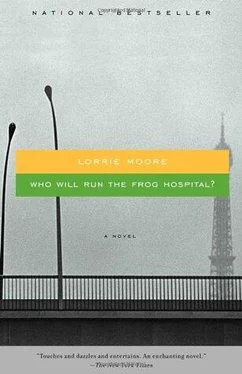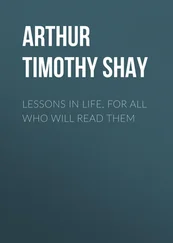One May someone just came and got Nancy and took her away. It seemed scary to me, that that could just happen. That someone could simply come and take you and go.
But LaRoue stayed and got her own room — the blue one with its deep white windowsills — and called my mother “Mom.” I was three years younger, though only one grade behind her, and I had the larger, yellow room with my brother Claude with whom I was close, being just a year older than he. Claude and I were “bunk-buddies,” a phrase I used laughingly, ironically, bittersweetly, later in life, with lovers, those nights of an affair I’d sleep with a man but sexlessly, feeling tired, the dumb dog of my body too exhausted for love, running all week in the meadows of it, now desiring merely to sleep, beat, next to someone else but close, like a brother, like Claude. “Bunk-buddies: we can be bunk-buddies.”
There was actually a bunk my brother and I slept in — sometimes he on top, sometimes I, to equalize things, I suppose. While the house was full of strict bedtimes and rules, all posted to the refrigerator with Bryson Paper Mill magnets, little pine trees with BPM stamped on them in gold, we were essentially unwatched children. We could find ways to do what we wanted, though we made a great deal of the moment at night when one of our parents (we were told, we assumed) would come in to check on us before they went to bed. We were never awake for this moment, but we knew of it, believed in it in a religious way, and sometimes, put to bed too early on a crickety summer evening, we’d prepare for it, like the Last Judgment. We turned it into a kind of body sculpture contest, posing in elaborate ways on our beds — standing on one foot, head hanging off one edge, arms lifted in the air and mouths and teeth and eyeballs arranged in astonished grimaces. “This will really surprise Mom,” we’d say, or “Dad’ll get a kick out of this,” and then we’d try to fall asleep that way. In the morning we’d awake sprawled in ordinary positions, never recalling whether we’d glimpsed a parent or not, or how we had finally fallen off to sleep in this more normal way.
Claude was my first pal, before Sils, and we were each other’s best friend, bunk-buddy, child spouse, until I was nine and he was eight, and we got separated — in a way, for the rest of our lives. We were too old; it was unseemly for a brother and sister to share a room. So the house got renovated, and each of the children got their own room — mine was downstairs, alone, off the first-floor hall. His was upstairs.
Soon afterward Claude befriended a new boy down the road, Billy Rickey. I stumbled around, then looked and found Sils, and that was that. Claude and I never really saw each other again, not in a true way. Passing each other in the corridor at school, seeing each other at dinner, then years later at holidays, weddings, and at funerals, we couldn’t figure out who the other one was anymore. It was as if one of us had grown flippers or feathers or a strange stripe up the side, our species suddenly unclear.
But he always remained, for me at least, my first love, my child bride, and in a busy family, speaking in tongues, it was important to be married, somehow, to someone. So I was, had been, for a while, to Claude.
It was LaRoue who was alone. As little children, Claude and I were all bodies and sleep and play — closer than even adults usually get — and we’d viewed our parents as stern, distant royalty and LaRoue as older, disturbed interloper, visitor, rent-a-girl, but Christianly tolerated. Our family read the Bible every night at the dinner table, my father proceeding chapter by chapter through the Gospels, The Acts, the letters from Paul to Timothy (I imagined Paul Zabrowski at school and his annoying friend Timothy Wilson), through First John, Second John, Third John, all the way to Revelation (“And to the angel of the church in Philadelphia …” Philadelphia? Aunt Mimi lived in Philadelphia!), all the long strange verses, as we watched our food grow cold. And so we learned forbearance.
(“We used to read the Bible at the dinner table, too,” said my husband when I first met him and we were trading tales. He was Jewish, Socialist, half Hungarian.
“Really?” I’d asked.
“Yeah,” he smiled. “Only we would read it in these really sarcastic voices.” I laughed in a loud, honking way. We needed to joke and play. We were nervous, unsure. “What’s also interesting,” he said, encouraged to the point of derangement, “is that although most people called him God, we called him — well, we called him ‘Fuckhead.’ ” Daniel slapped his hand across his heart. “One nation, under Fuckhead.”
I fell sideways, hysterical, then tried to straighten, relocate my napkin, when our grim waiter began to approach. “At any rate,” I said, stressing the oxymorons, “Bible reading and Peruvians on the Hide-A-Beds. That was my ‘Family Life.’ Be that as it may.
“Be,” I added uncertainly.)
LaRoue existed for us as a gently tolerated and lonesome guest. She was fat where we were thin, blonde where we were dark. The thick pelts of our eyebrows shrieked across our faces, some legacy of the Quebec fur trade. Hers were faint and wispy, like an aerial shot of grain. She was older, separate, glum, periodically in some state of convalescence the details of which our parents did not reveal. Claude and I had staked out a separate contract. When people were gone, we explored their rooms. We’d get home from school early, our father still at work at BPM downtown — or “downstreet,” as we used to say; at the mill he was head of the forest management department. Our mother would be at some steering committee meeting for the United Women Proposing the Beautification of Horsehearts — racking up minute notes about petunias and elms with Hilma Johnston, Thelma LaRose, Betty Dreiser, Lou-Anne Gerard.
LaRoue, after school, was usually at the Saddle and Riding Club.
And so Claude and I stepped in and went through stuff: my father’s slacks hung by the cuffs from the top dresser drawer; his old wooden shoehorns like puppets on the closet floor. My mother’s drawers full of sachets and girdles, and in the clutter on the dresser top the bright coral lipsticks and Avon colognes and old tinted photographs of herself when she was in college and had won Ankle Contests. In this way we gathered information about our parents; we were true and successful spies, for our parents never gathered much about us, we believed, nor cared to, in the way that was so often the case in large families of that time. My father could not even recognize me in a group, couldn’t pick me out in the annual class picture—“Dad, that’s not me, that’s Cynthia Odekerk!”—never recognized us on his way to work when he passed my brother or me in a group of children heading to or from school. “Who?” “Cynthia Odekerk!” He walked, hatless and lost in thought, down through the village toward the river, where the mill was—“Hello, hello!” we’d call, and he would wave to us in a general, uninterested way, still moving with his big shoes and long stride, not really even looking up. “There’s your father,” a friend might say. Or, “That’s your father?” as baffled as we.
I suppose we felt less bullied by his neglect than by his attentions, which tended to take the form of correcting us when we hit a wrong note on a Brahms piano intermezzo. “Aow!” he would yowl. “C-sharp, C-sharp, C-sharp!”
If we cried, he would say firmly, “Stanch and starch the mush!”
He started calmer conversations with us when it had to do with the crossword puzzle he was doing; he would call us to his side in the den, if he needed the name of a TV show he’d never seen. Once you’d given him the name of the show, he would ignore you again, turn back to the puzzle, and leave you standing there talking about the show a little, the various characters in it, what had happened to them, and what you thought would happen to them next. You’d be standing there talking to no one.
Читать дальше












